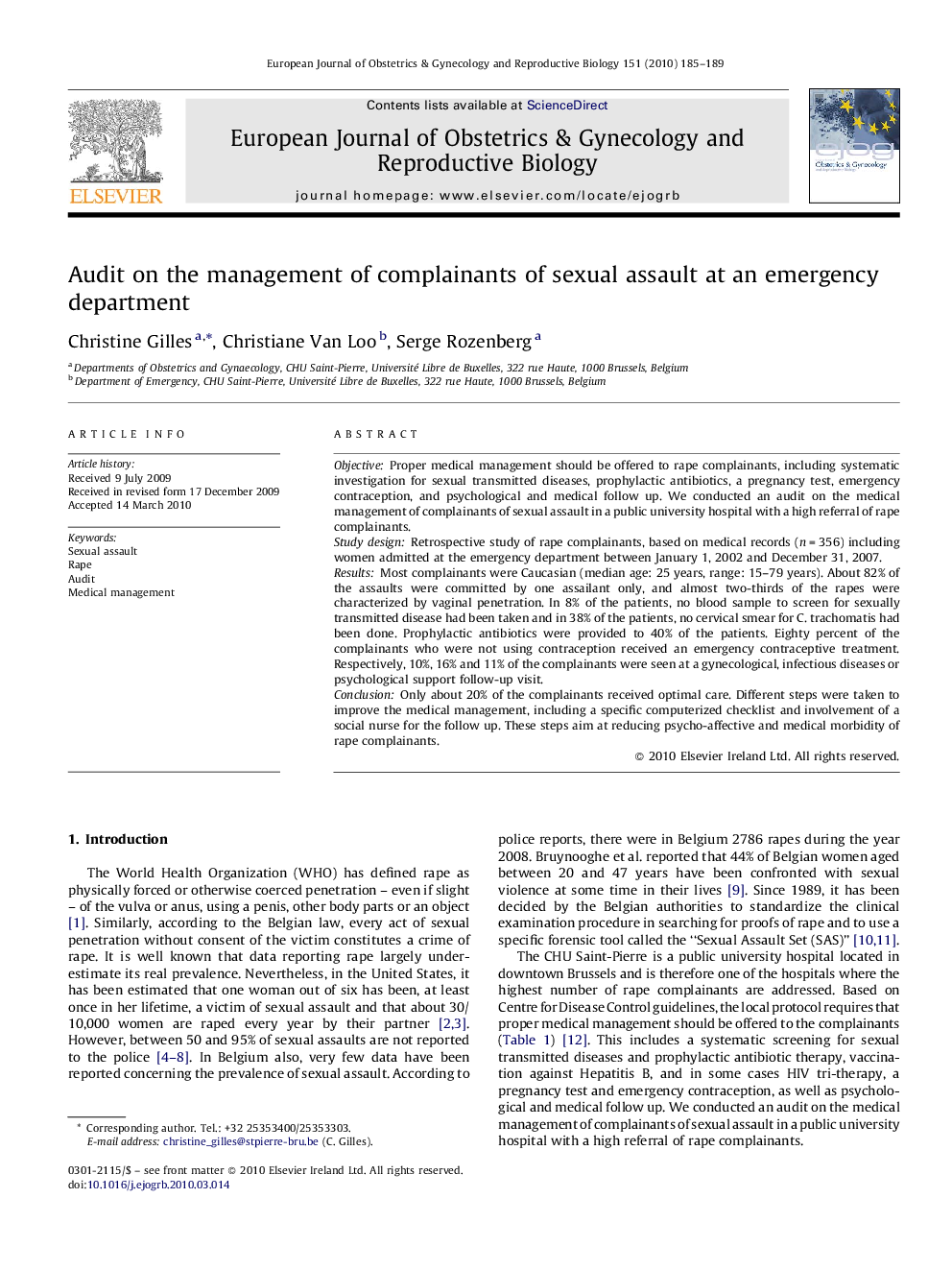| کد مقاله | کد نشریه | سال انتشار | مقاله انگلیسی | نسخه تمام متن |
|---|---|---|---|---|
| 3920827 | 1599850 | 2010 | 5 صفحه PDF | دانلود رایگان |

ObjectiveProper medical management should be offered to rape complainants, including systematic investigation for sexual transmitted diseases, prophylactic antibiotics, a pregnancy test, emergency contraception, and psychological and medical follow up. We conducted an audit on the medical management of complainants of sexual assault in a public university hospital with a high referral of rape complainants.Study designRetrospective study of rape complainants, based on medical records (n = 356) including women admitted at the emergency department between January 1, 2002 and December 31, 2007.ResultsMost complainants were Caucasian (median age: 25 years, range: 15–79 years). About 82% of the assaults were committed by one assailant only, and almost two-thirds of the rapes were characterized by vaginal penetration. In 8% of the patients, no blood sample to screen for sexually transmitted disease had been taken and in 38% of the patients, no cervical smear for C. trachomatis had been done. Prophylactic antibiotics were provided to 40% of the patients. Eighty percent of the complainants who were not using contraception received an emergency contraceptive treatment. Respectively, 10%, 16% and 11% of the complainants were seen at a gynecological, infectious diseases or psychological support follow-up visit.ConclusionOnly about 20% of the complainants received optimal care. Different steps were taken to improve the medical management, including a specific computerized checklist and involvement of a social nurse for the follow up. These steps aim at reducing psycho-affective and medical morbidity of rape complainants.
Journal: European Journal of Obstetrics & Gynecology and Reproductive Biology - Volume 151, Issue 2, August 2010, Pages 185–189